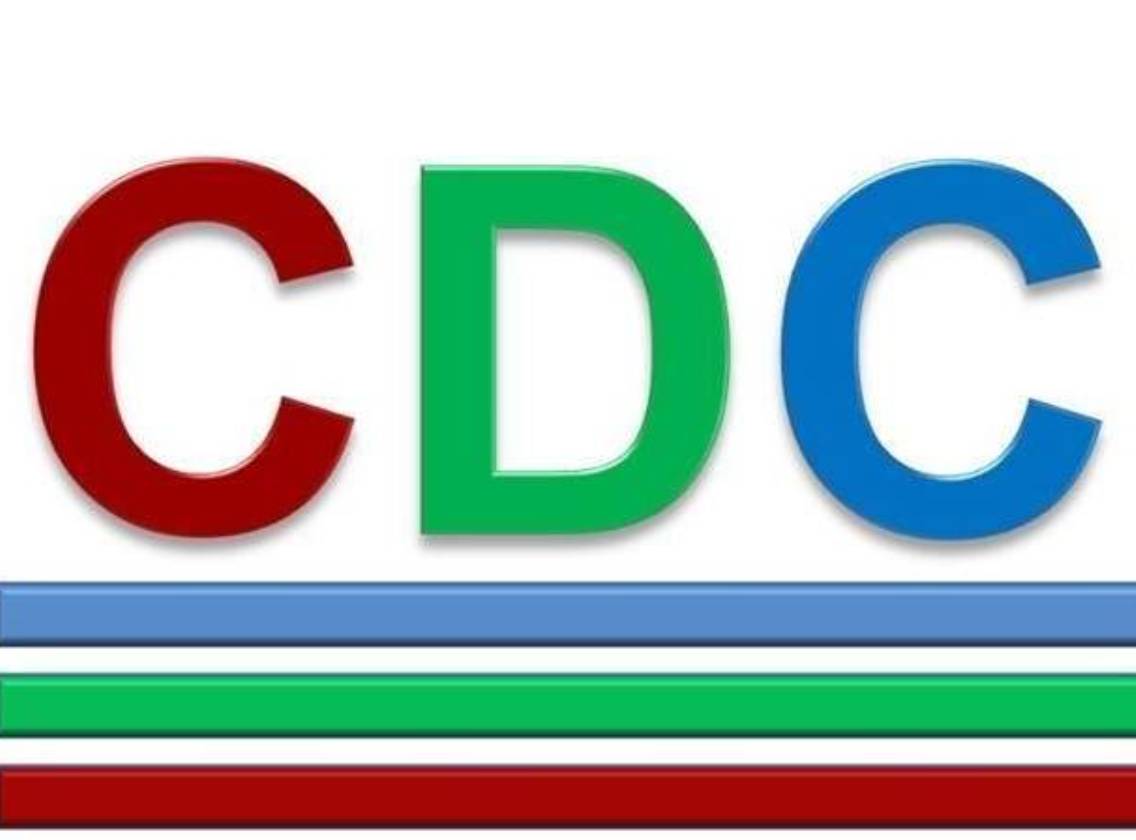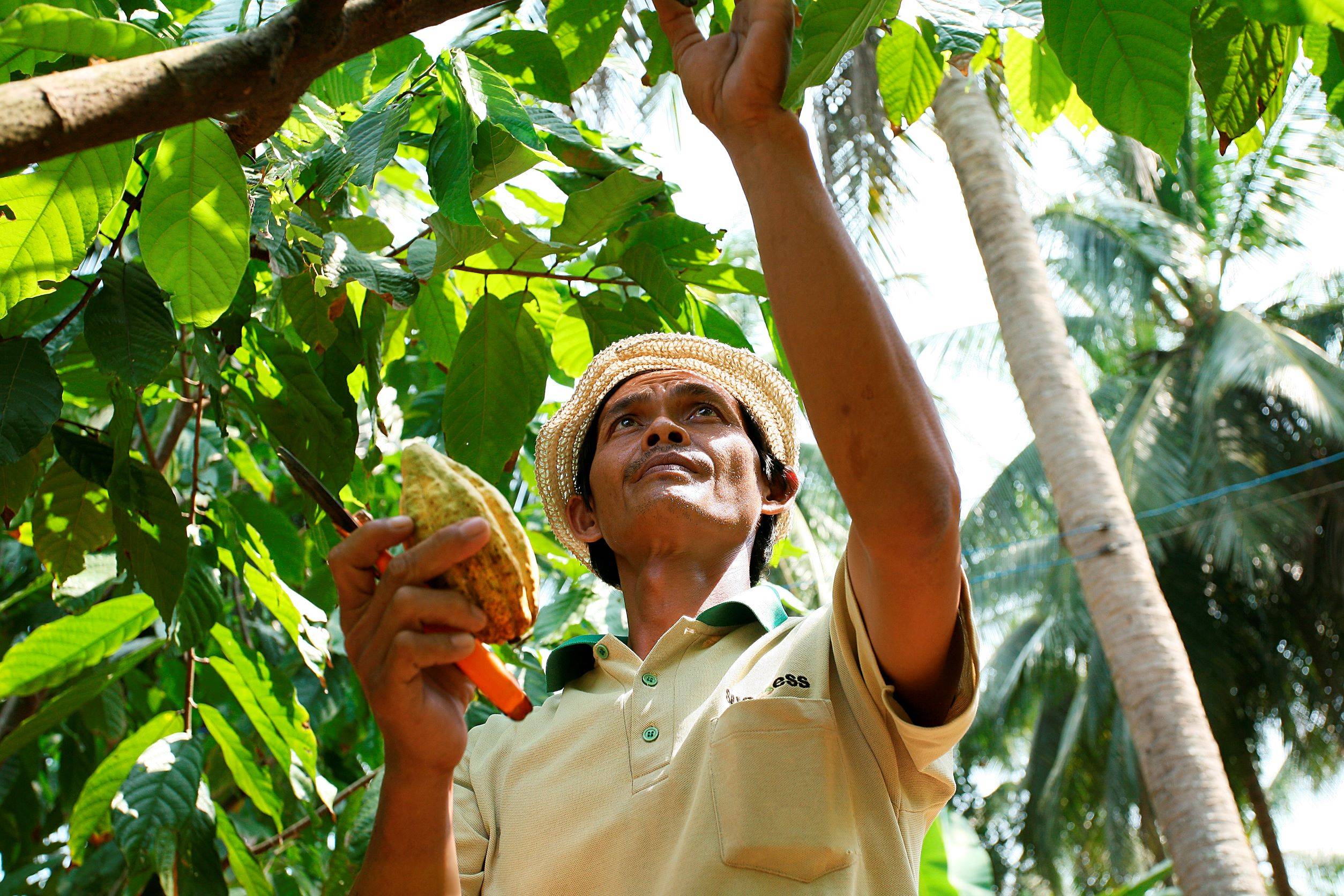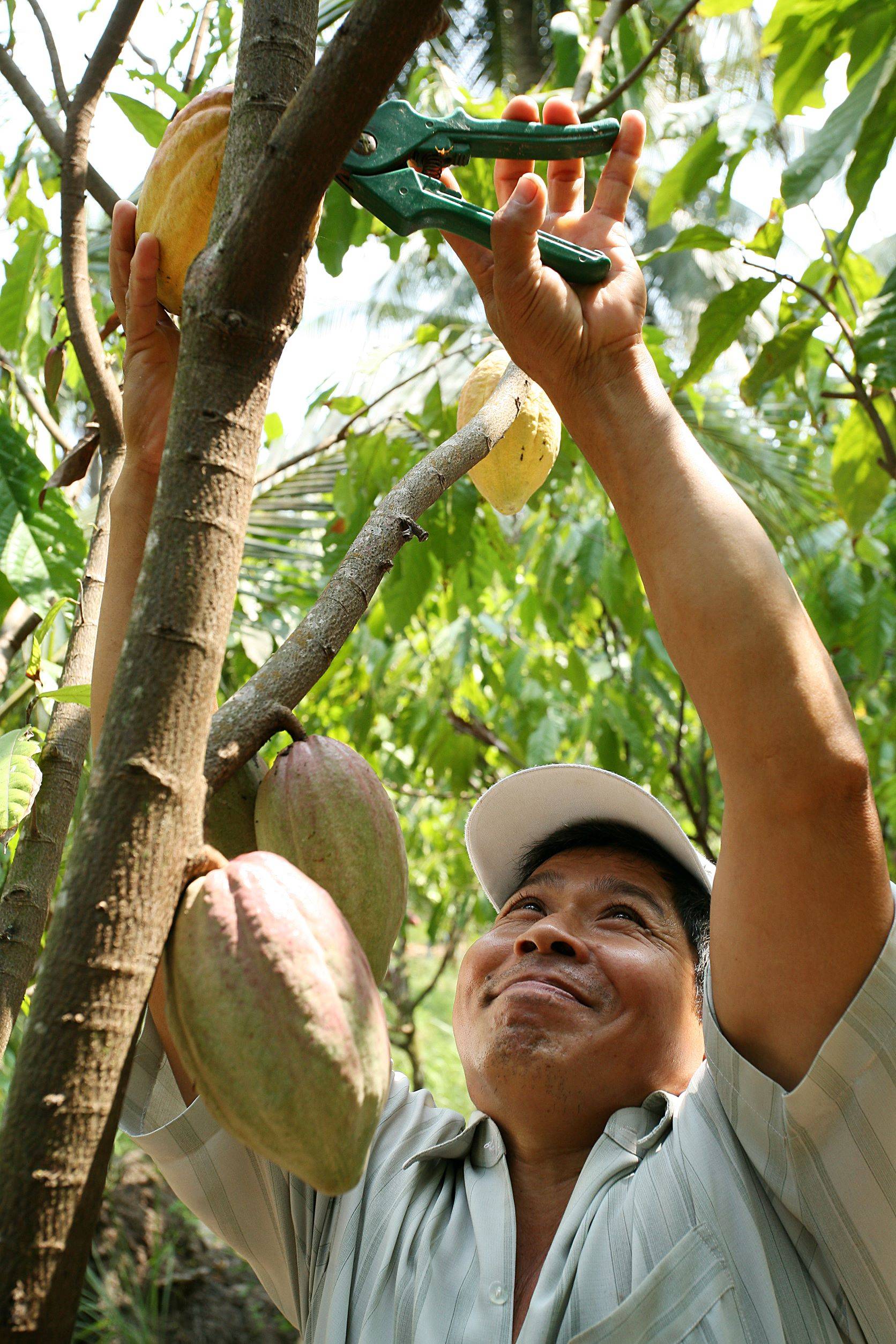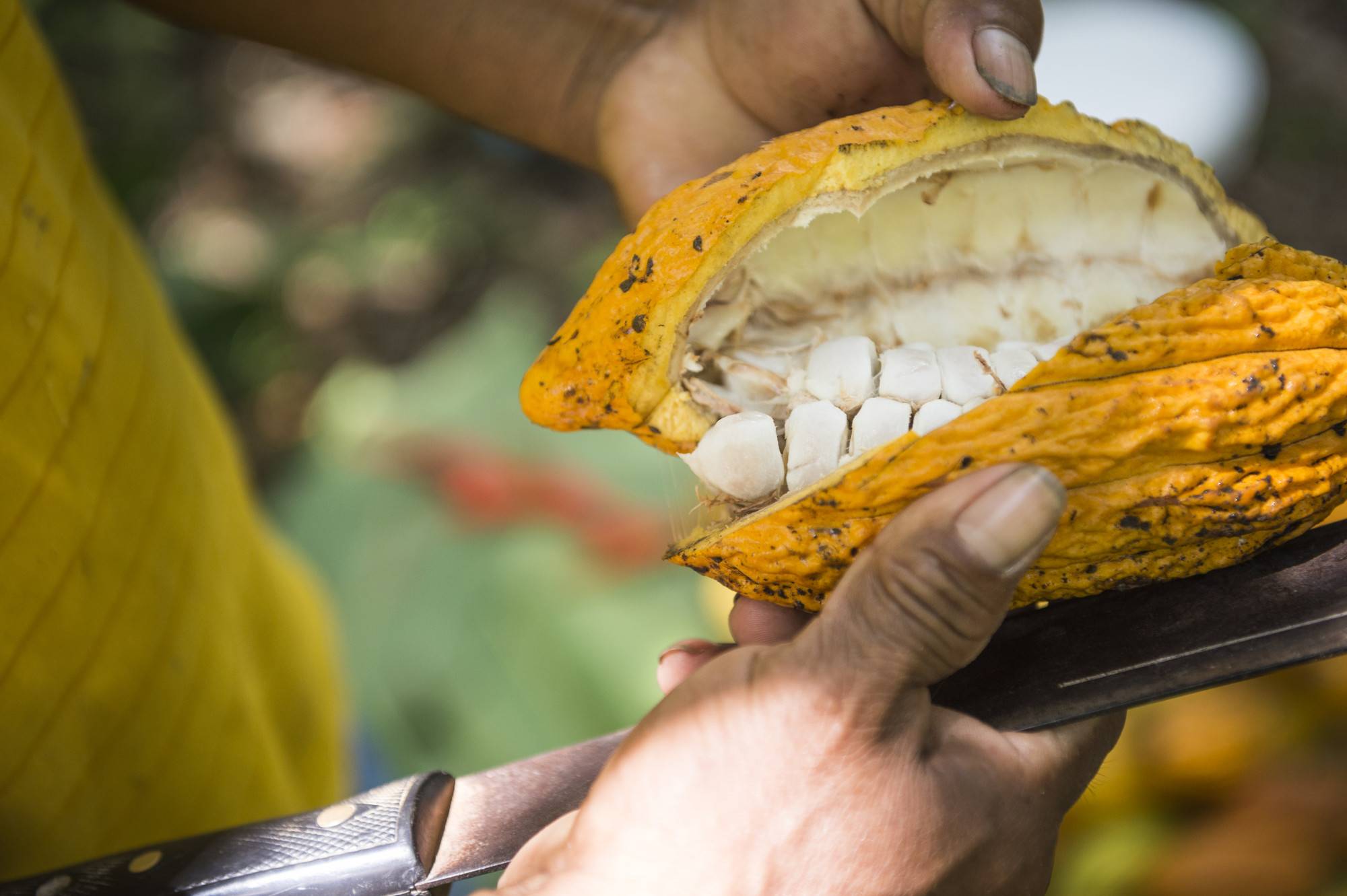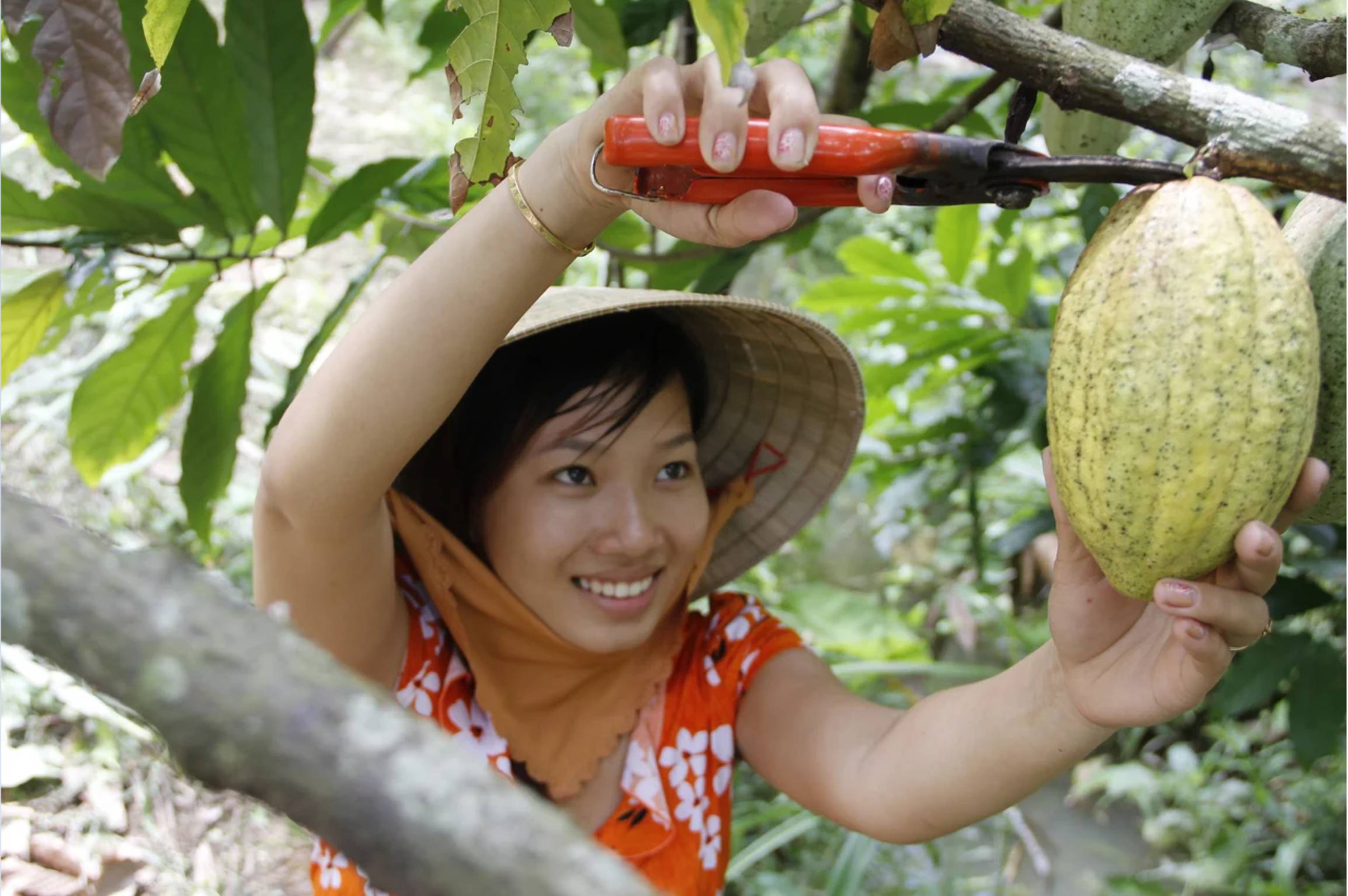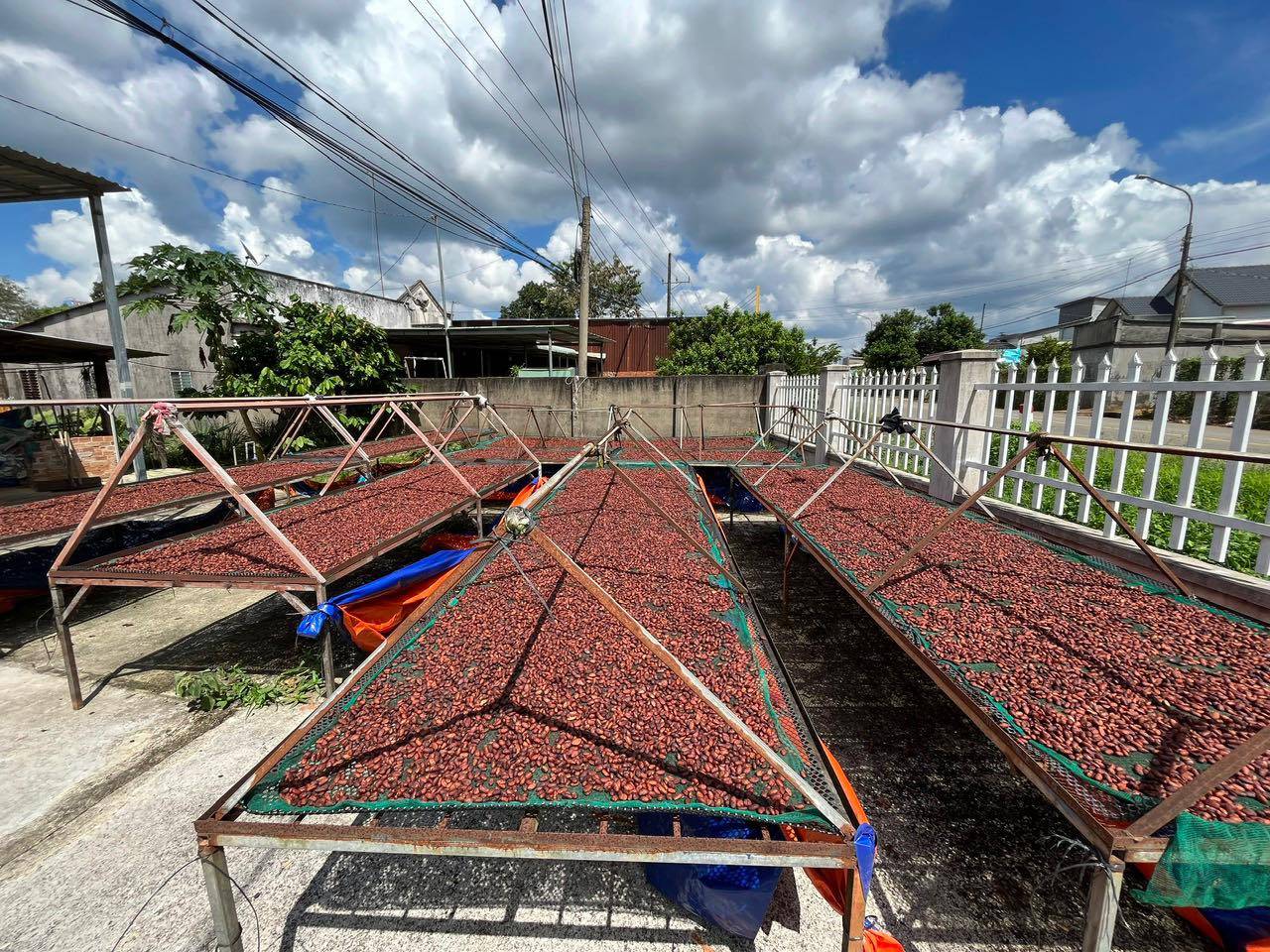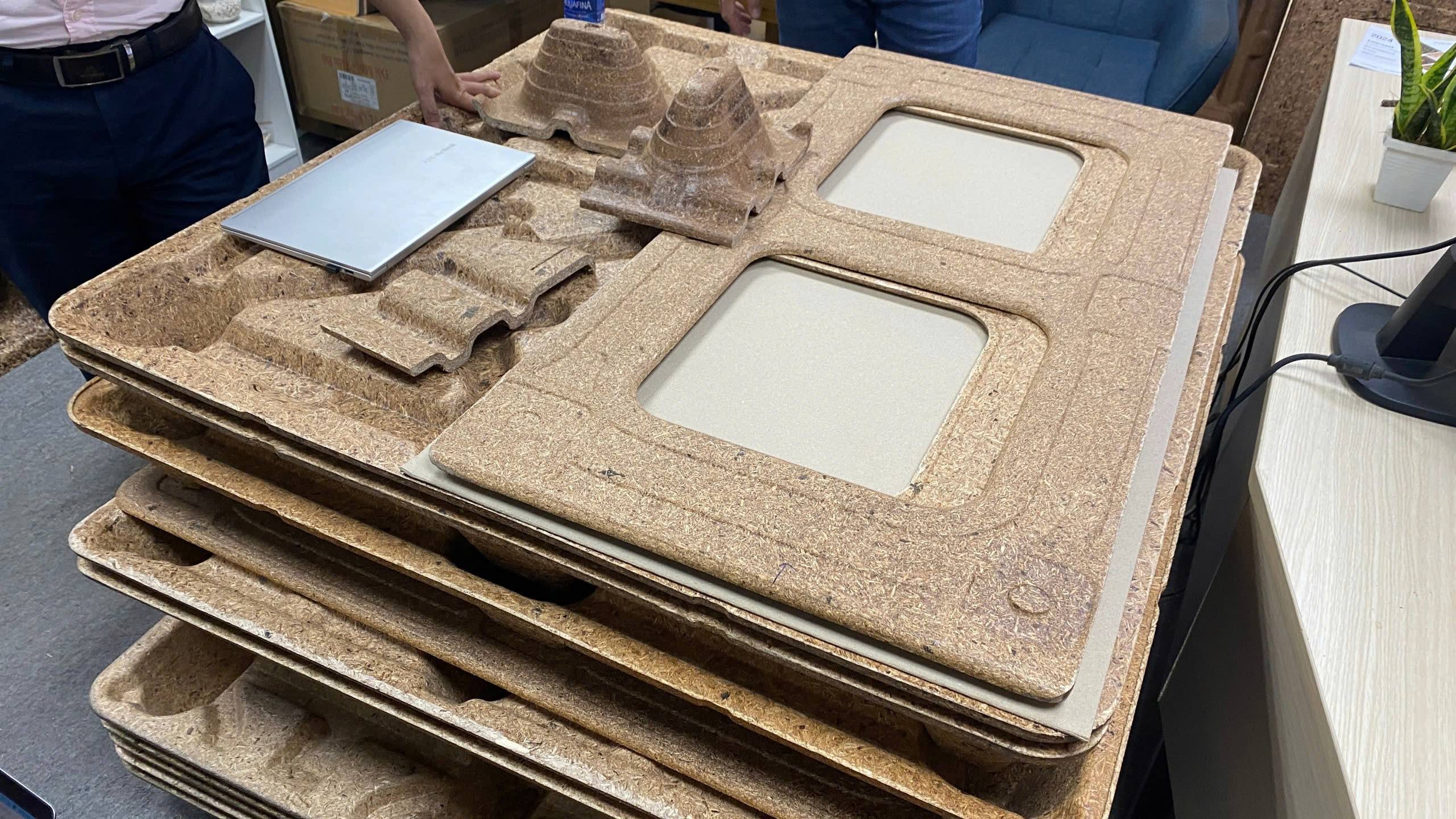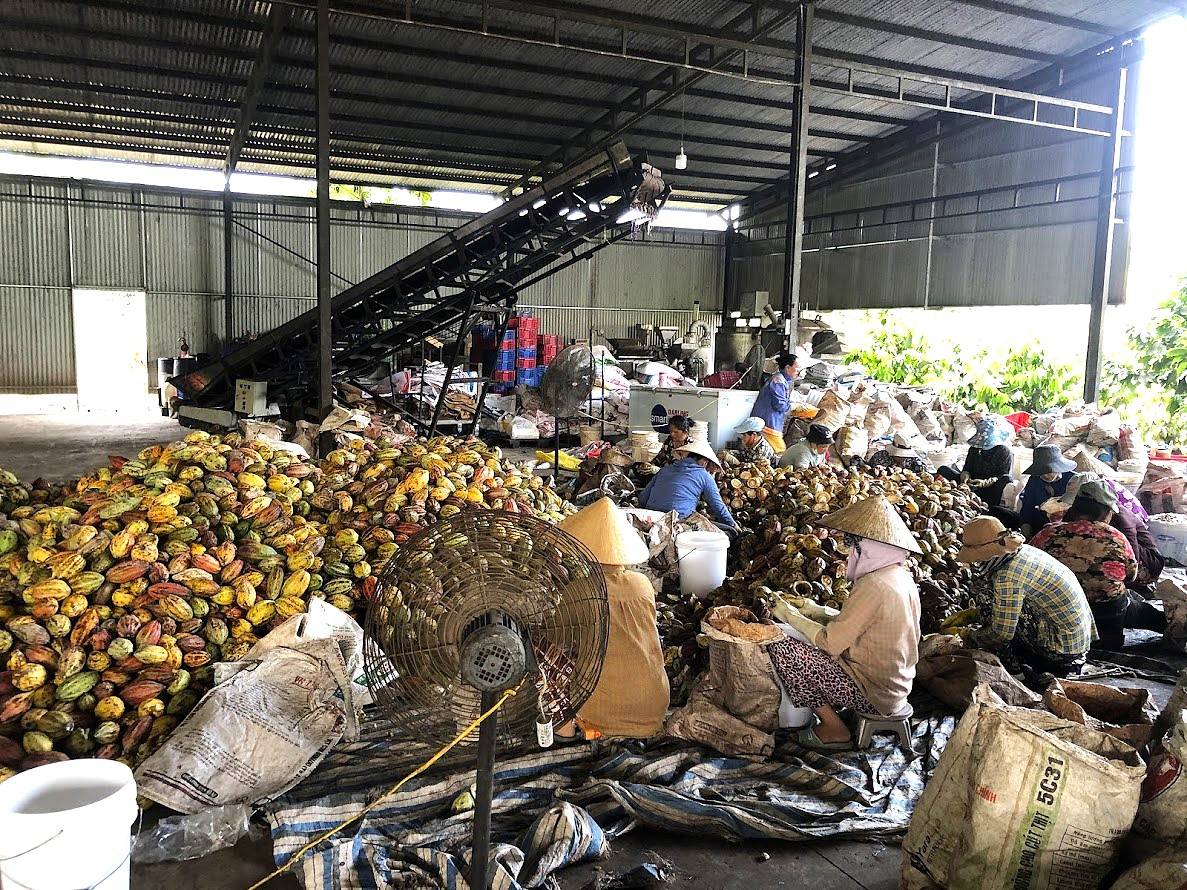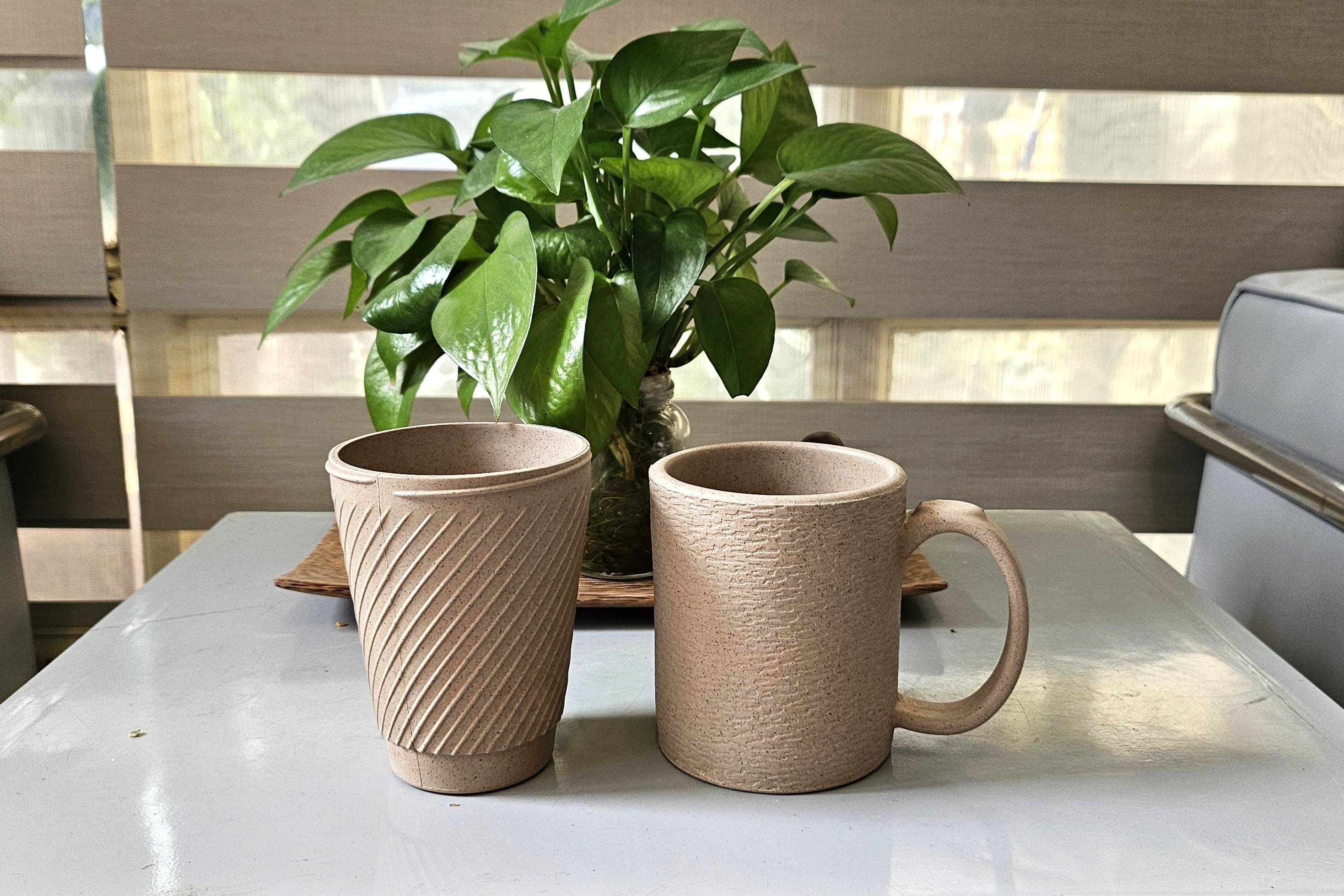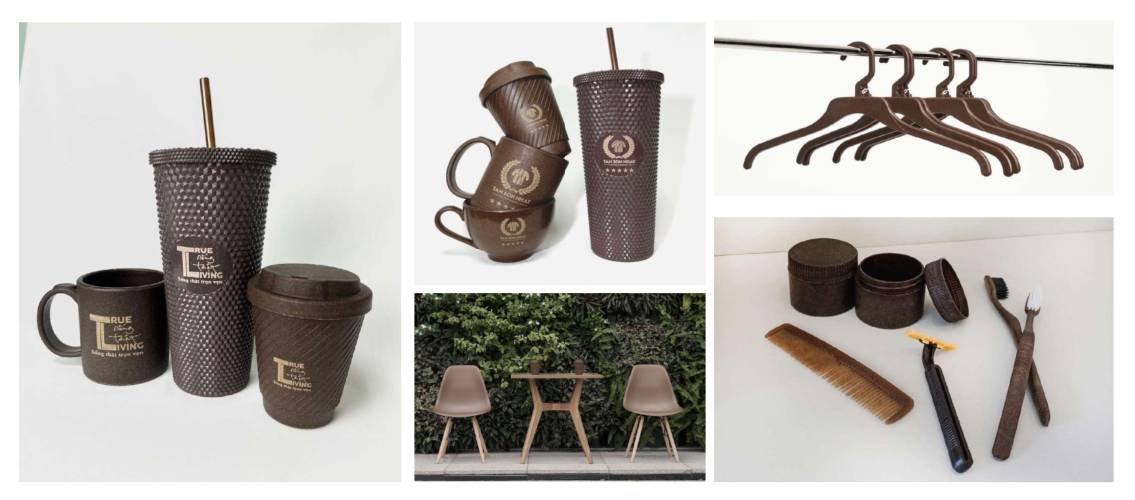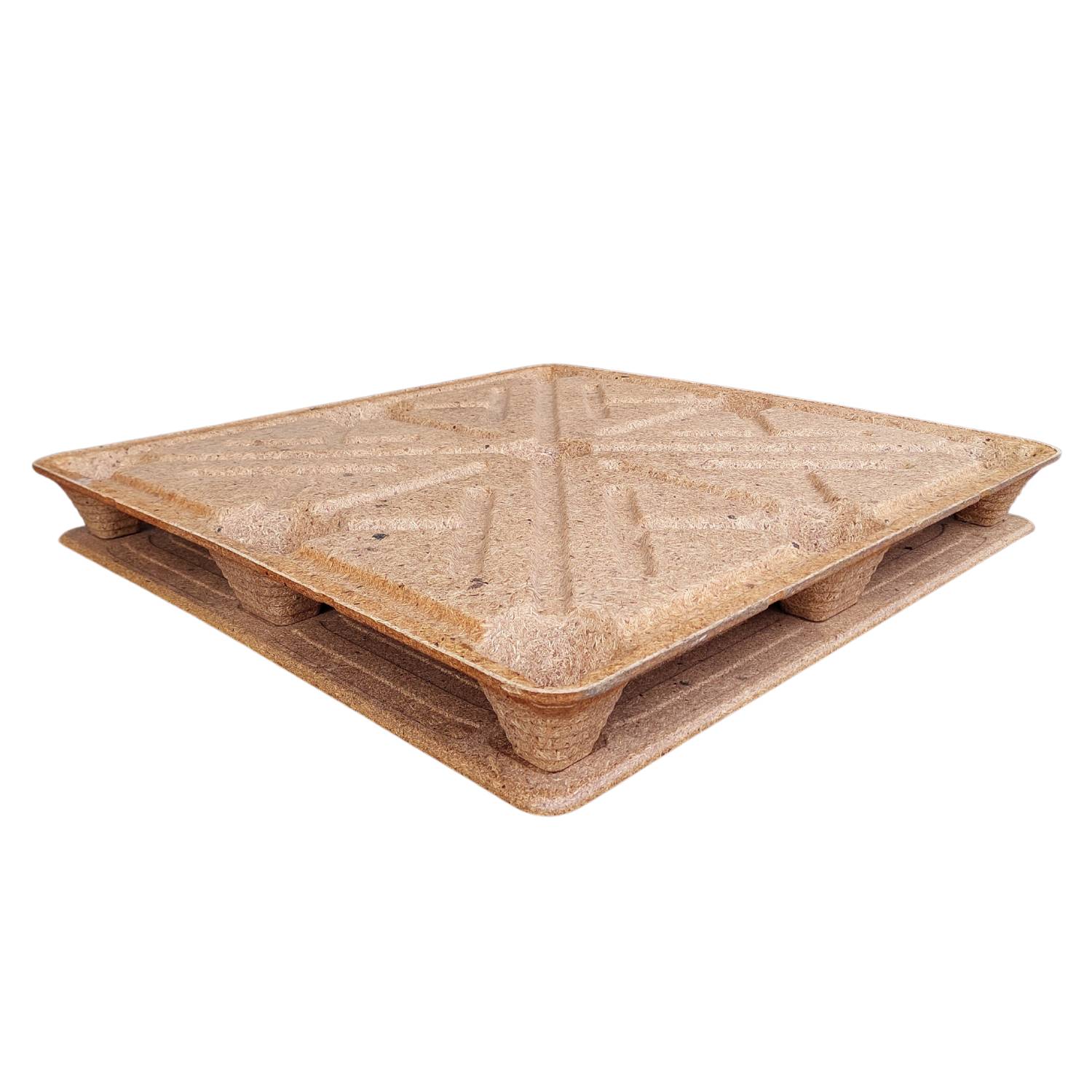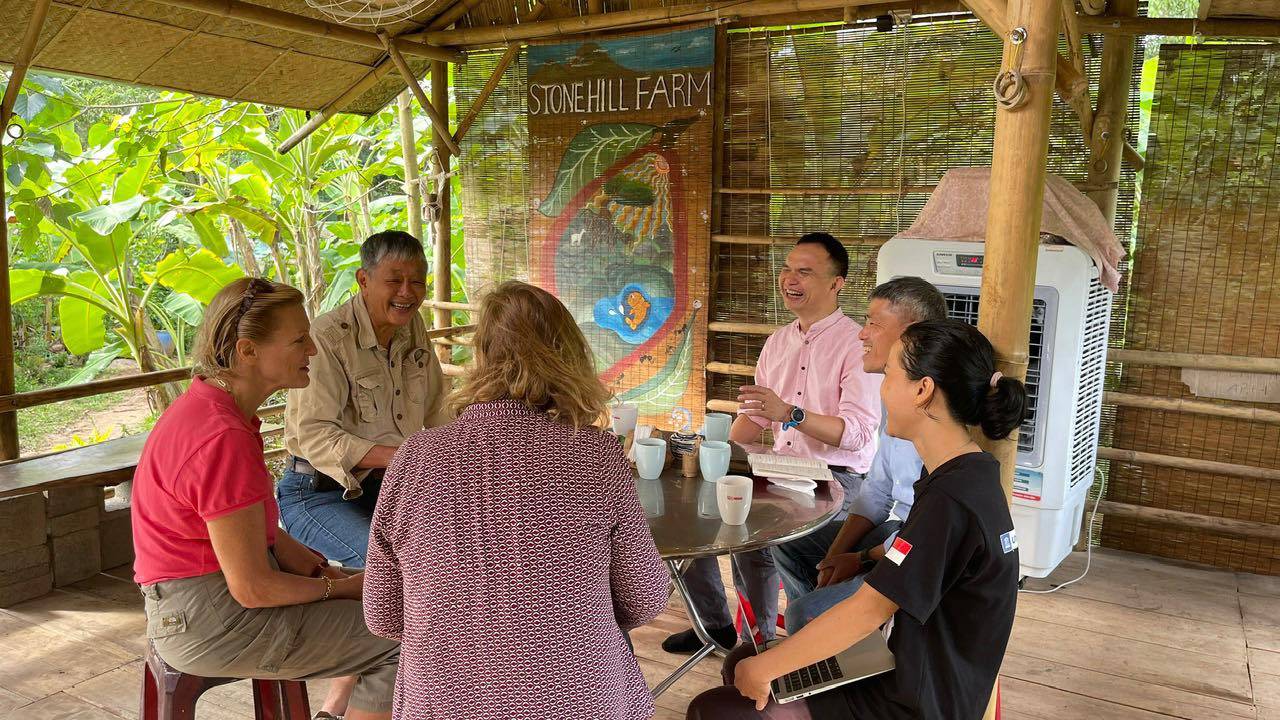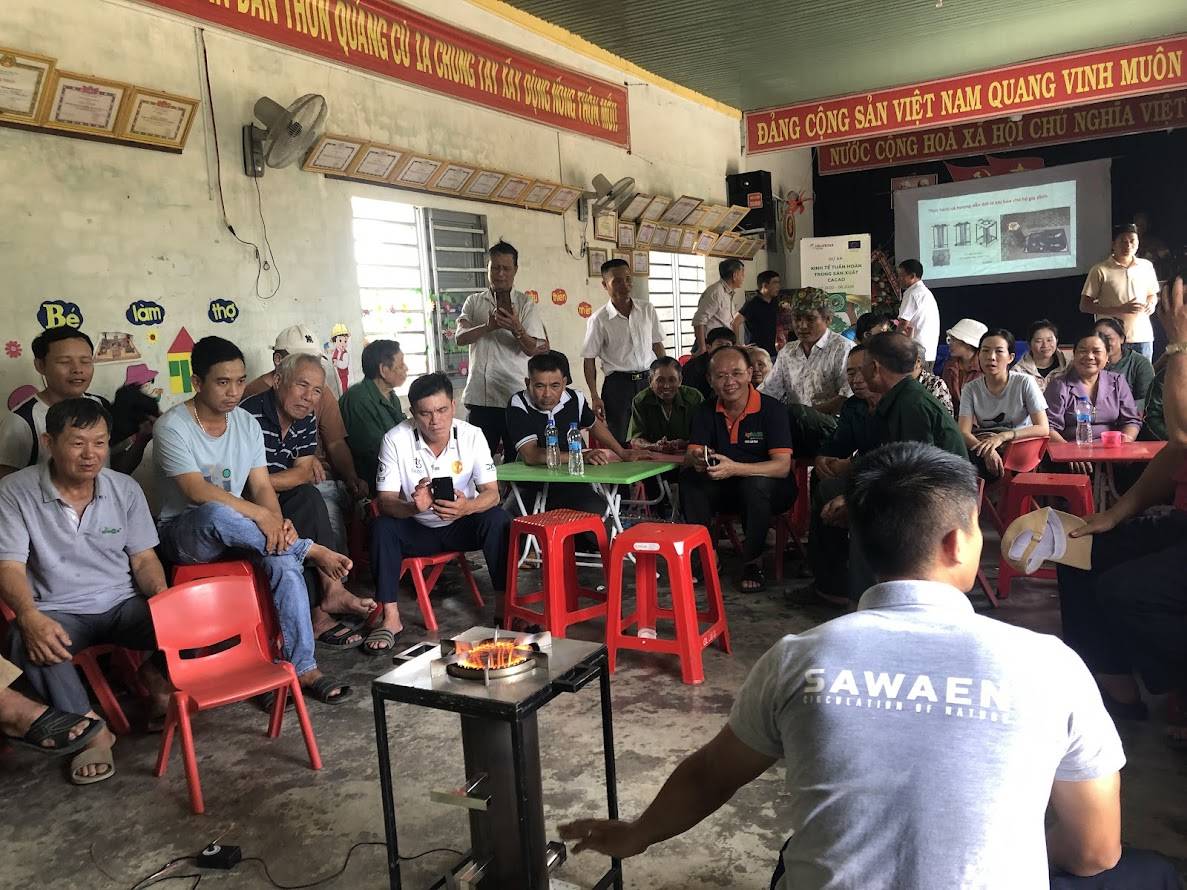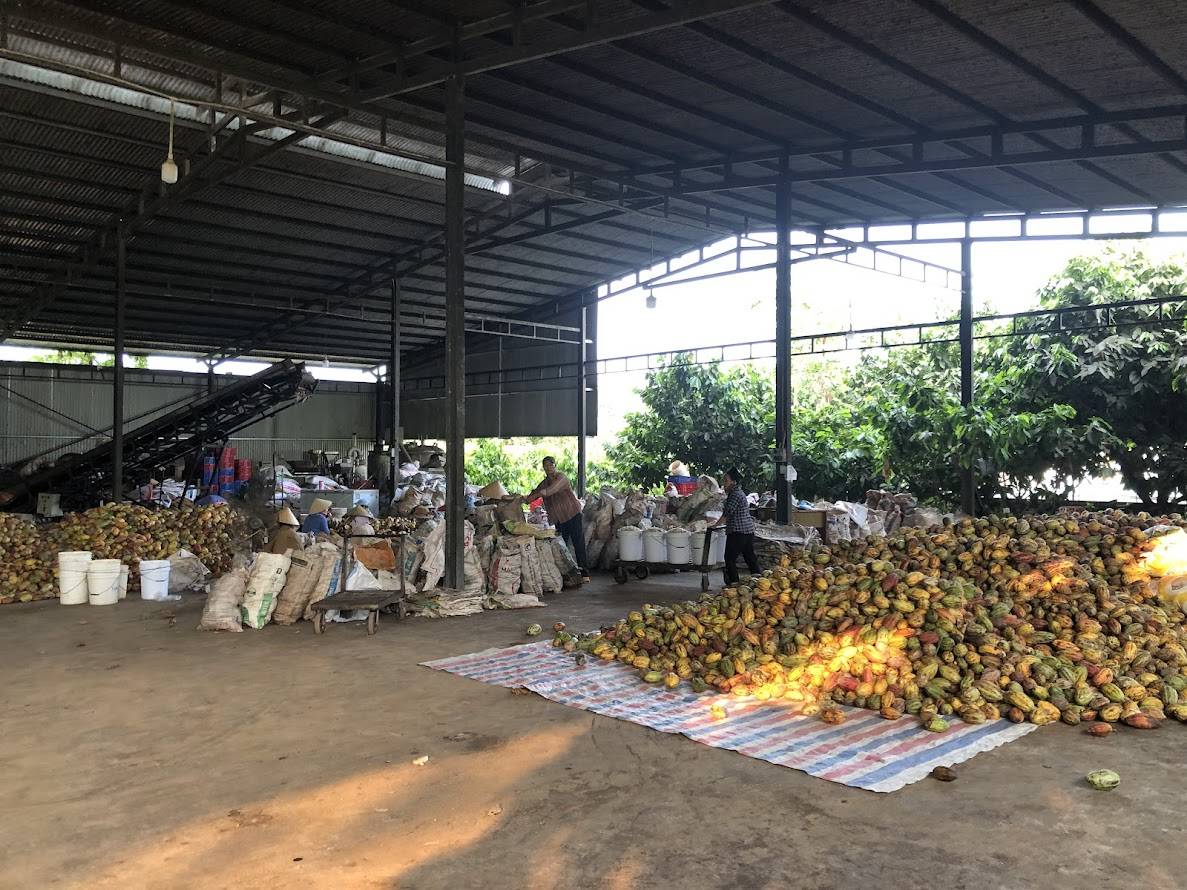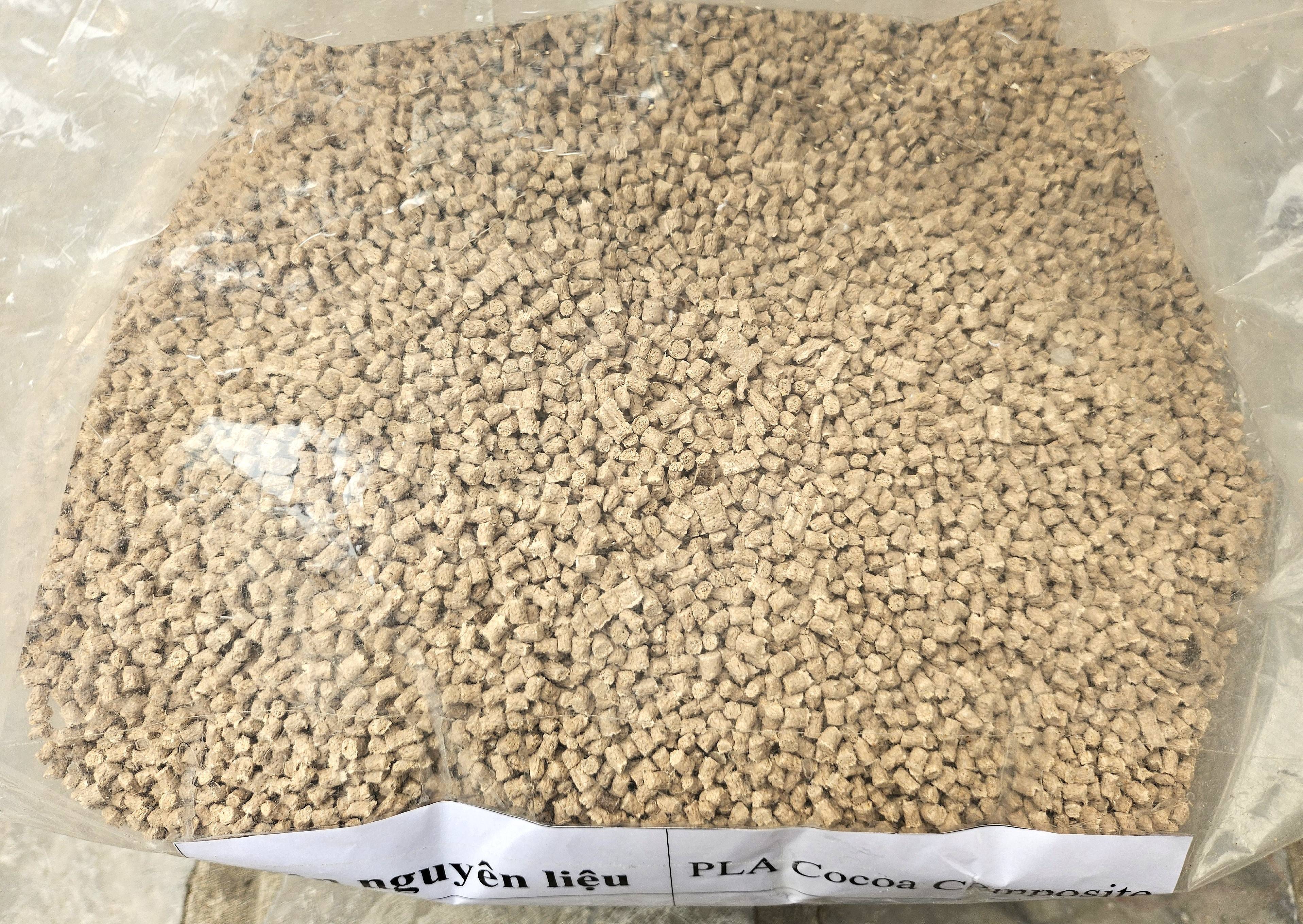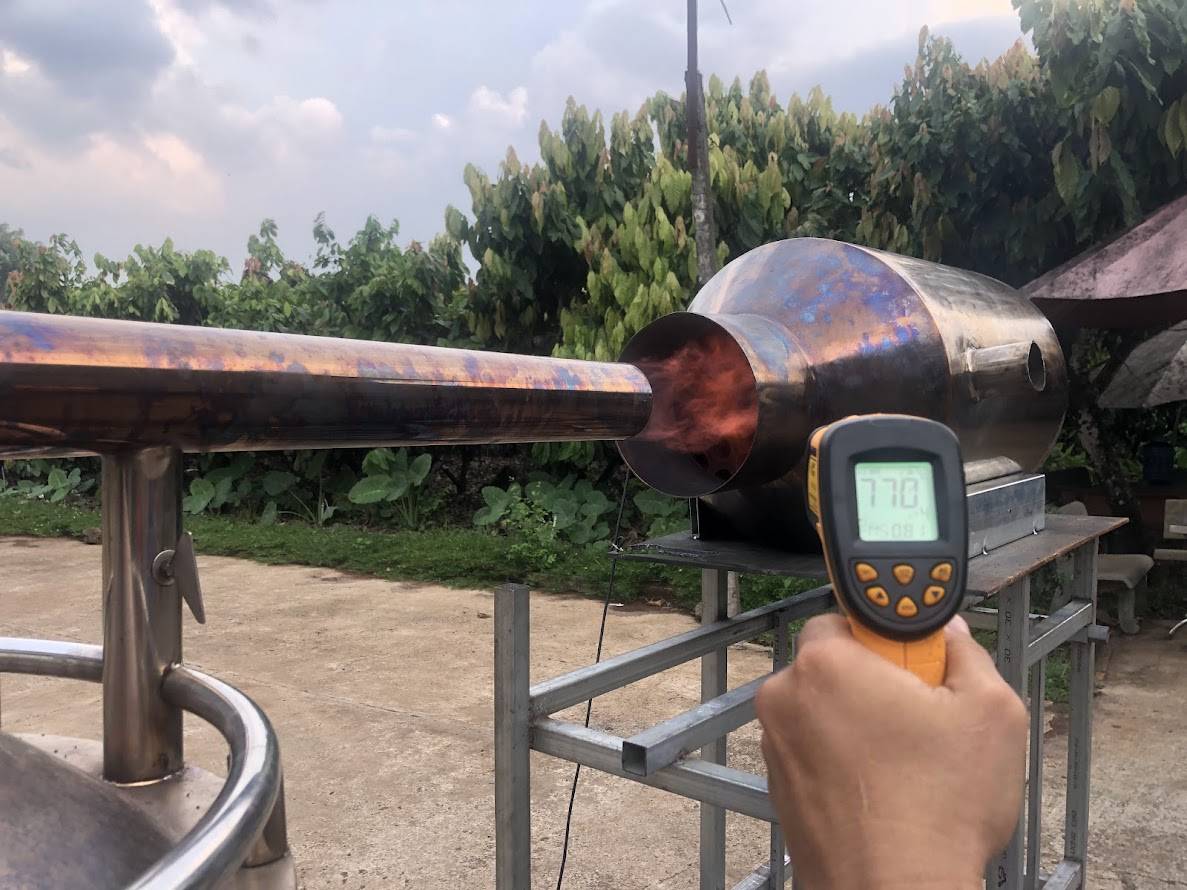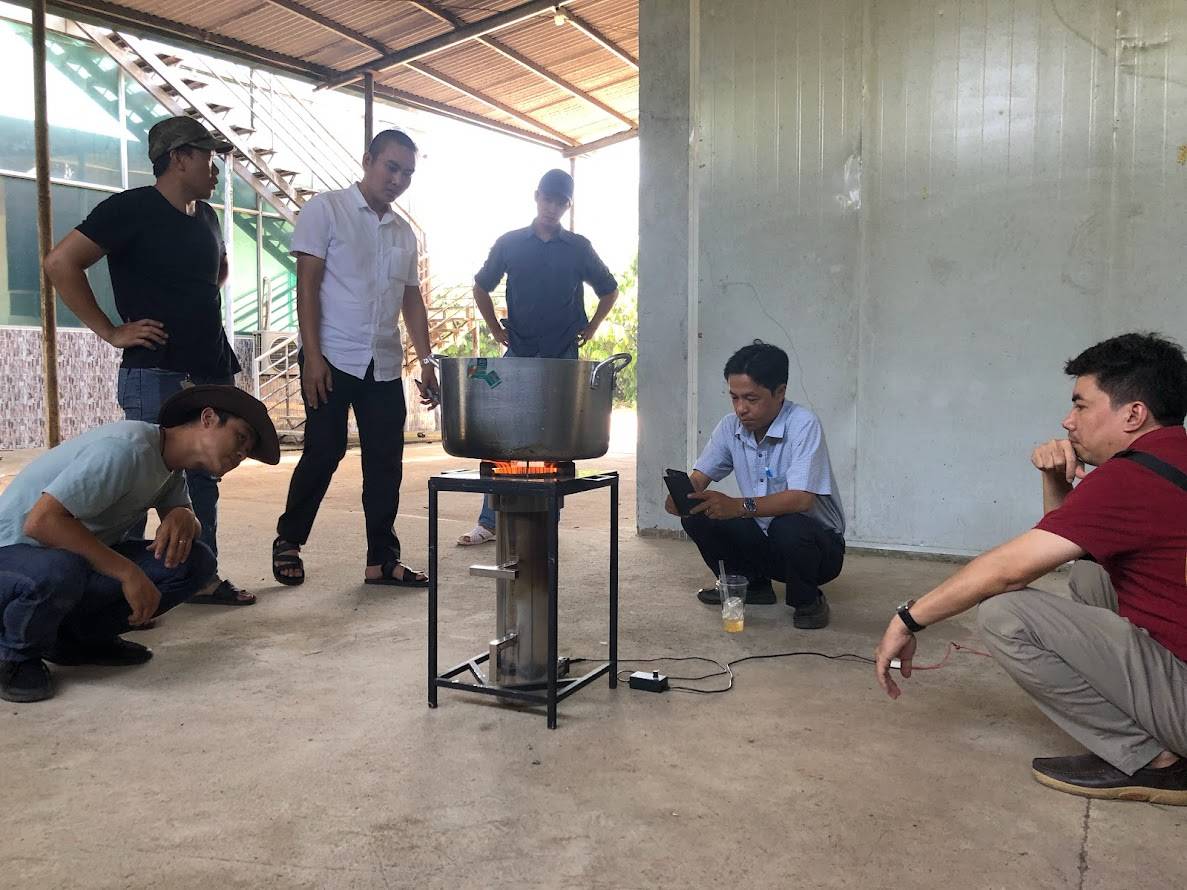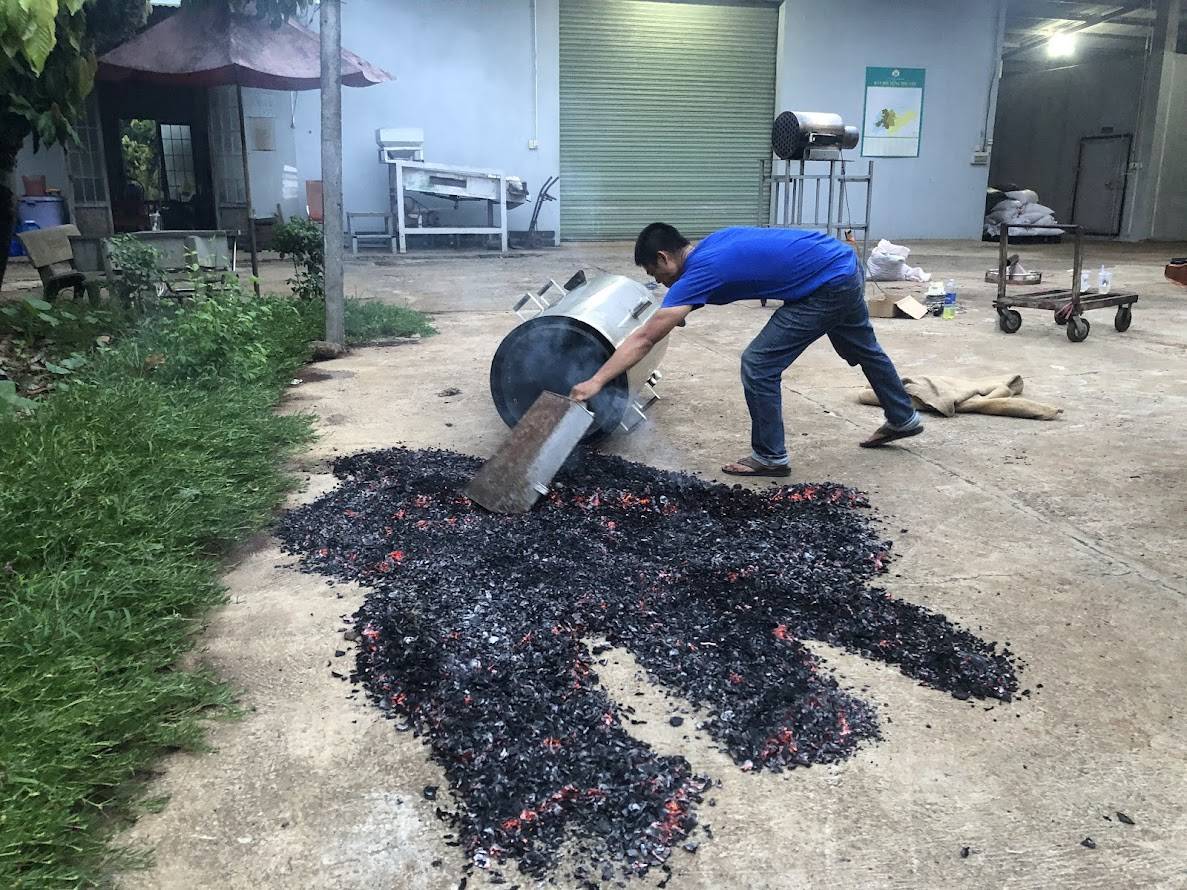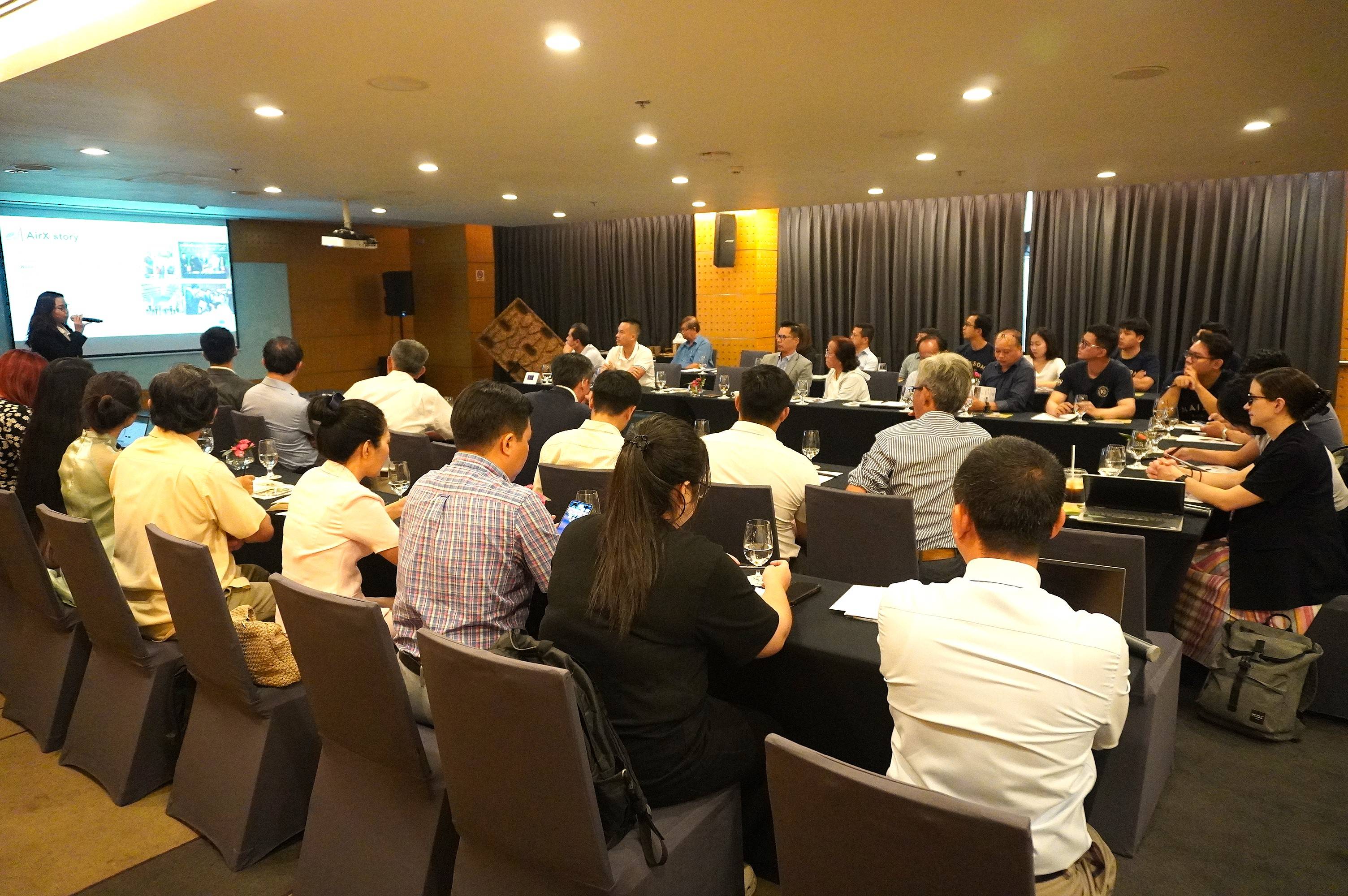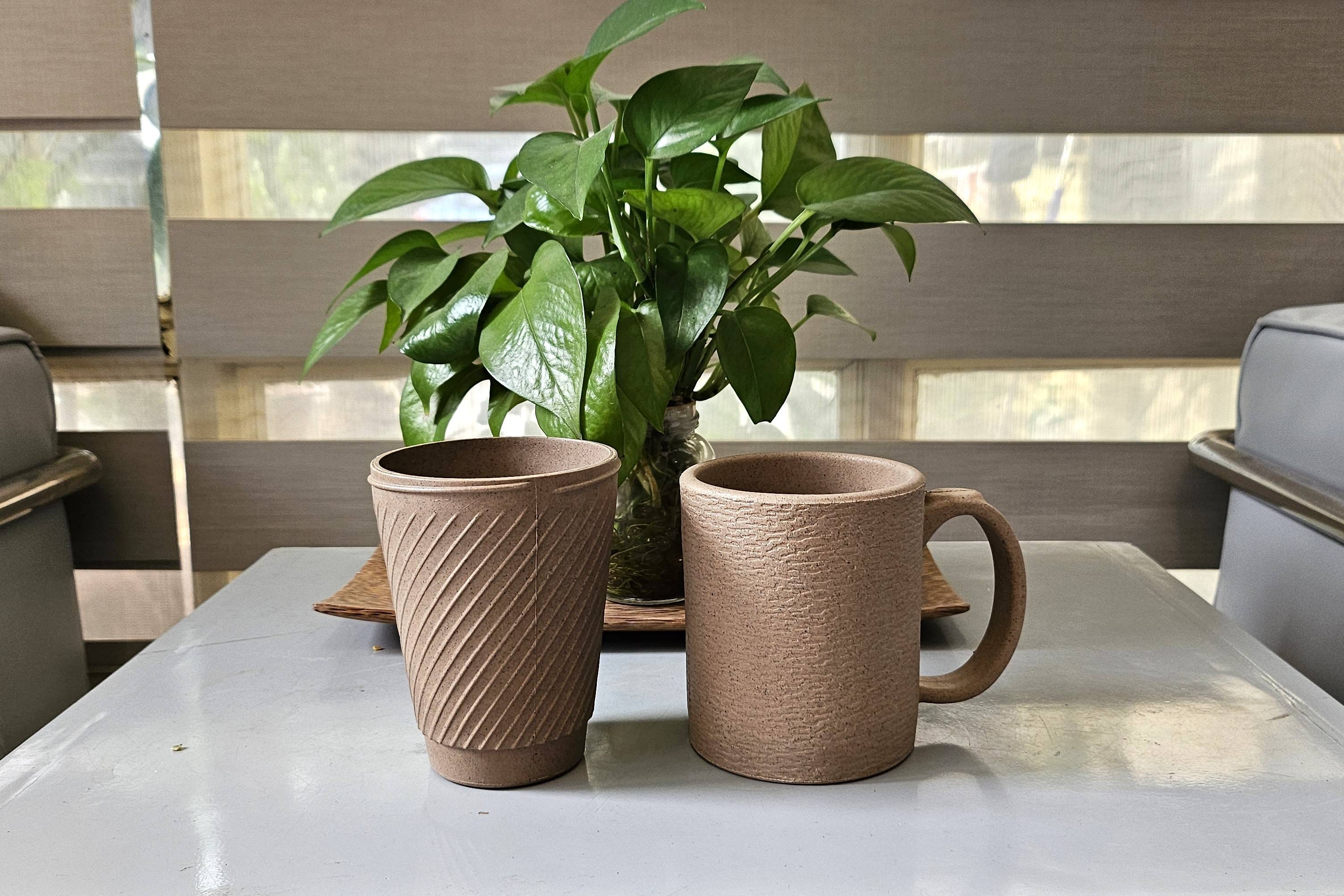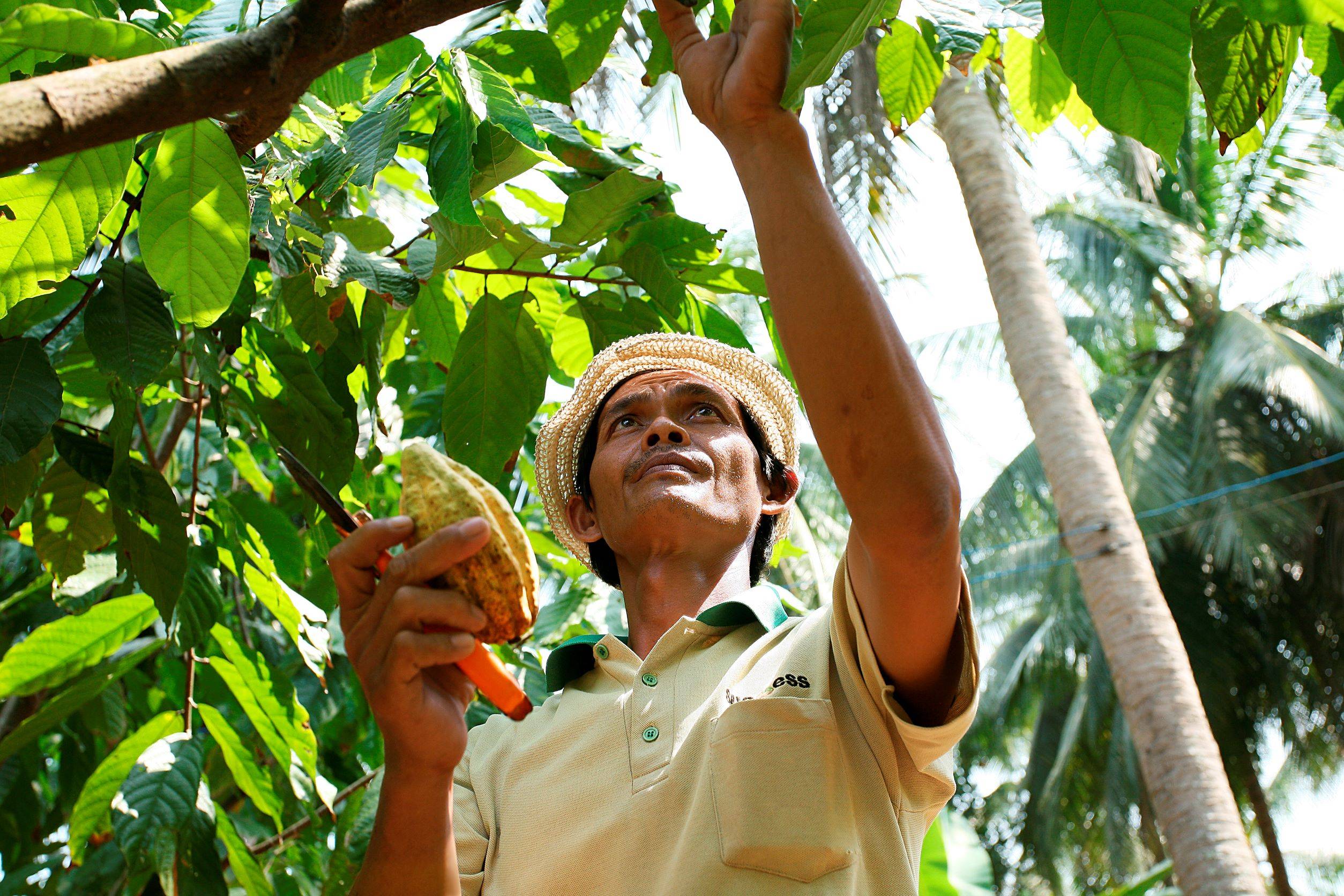
The Challenge
Circular economy is increasingly recognized as a way of reducing the environmental footprint of production and consumption, attracting increasing attention from consumers, businesses and policymakers around the world. While the approach is an emerging topic of discussion for government and business in Vietnam, awareness remains low and has not yet triggered a systemic transition from a conventional/linear economy to a more sustainable circular economy. The cocoa sector was selected because it is large and prominent enough to convincingly prove these concepts and achieve meaningful results, but small and cohesive enough to be a pioneering case. Like other agri-food subsectors, challenges exist at the production level (soil degradation and erosion, water pollution, poor product quality), in processing (use of fossil energy, water use, generation of waste), and later in the lifecycle (harmful packaging choices). All of these are driven by a business and policy environment that does not yet recognize or prioritize circular economy models. Cocoa production has the potential to do no environment harm if properly managed, but best practices are not widespread. Regenerative and circular economy approaches are needed to decouple the growth of Vietnam’s cocoa subsector from increases in carbon emissions, soil erosion, and landslides, water pollution, use of hazardous chemicals, and solid waste from environmentally unfriendly packaging. Cocoa enterprises are still not aware of the circular economy but are willing to make the necessary changes if they are shown how it can be done productively and profitably. It is, therefore, essential to have circular economy success cases that convincingly demonstrate how regenerative agriculture and circular economy can be implemented across product lifecycles. A well-documented example, backed by policy, economic and technical research, is a precondition for the adoption of the circular economy by businesses, financial institutions, and policymakers.
The Objectives
To develop and adopt less polluting and more resource-efficient and circular products, processes, and services by MSMEs allowing their integration to global greener value and supply chains. The proposed action will deal with numerous issues facing the Vietnamese cocoa and wider agri-food sectors. These include phasing out the use of hazardous chemicals in production, reducing the resource intensiveness of production and processing, introducing environmentally friendly bio-based packaging, and recirculating cocoa waste products as energy sources and raw material for agricultural inputs and packaging. Digitalization of traceability will also contribute to the growth of efficient, environmentally sound cocoa supply chains.
The specific objectives include:
- Transition the cocoa/chocolate subsector to regenerative and circular economy approaches at key points of the product lifecycle;
- Leverage change in the cocoa subsector to trigger the uptake of circular economy approaches in the wider agri-food sector;
- Prove the feasibility of closed-loop and circular production, providing an example for others to follow and informing supportive policies.
The Way Forward
Transition of the cocoa and chocolate subsector to a regenerative and circular economy business model triggers uptake of circular economy in the wider agri-food sector and policies of Vietnam, leading to equitable economic growth decoupled from harmful environmental impacts.
- Establishing circular economy business models for companies early in the product life cycle will create the ecosystem the cocoa sector needs to reach its growth targets while decoupling from negative environmental consequences of conventional cocoa production;
- Enabling efficiency of energy and water consumption, bio-based packaging, and environmental management system for chocolate processors by digitalized traceability systems will reduce the environmental impact of cocoa processing and demonstrate a circular economy later in the product life cycle;
- Implementing activities to trigger expansion of circular economy models in the wider Vietnamese agri-food sector. These activities include communication of data and case studies, supporting policies, and investment business model for the agri-food sector.
Relation to European Green Deal, Circular Economy and Climate Change
The project contributes to providing future-proof jobs and skills training for the transition towards a low-carbon and resource efficient circular economy, strengthening globally competitive and resilient industries and ensuring access to healthy and affordable food, fresh air, clean water, healthy soil, and biodiversity.
Duration:
2022-2026Total Budget:
EUR 1,939,438 (EU Contribution 80%)Contact Detail:
Dr. Luong Pham
Country Director, HELVETAS Vietnam
Tuan Nguyen
Project Manager
Lead Partners

HELVETAS Intercooperation gGmbH/ Helvetas Vietnam
Partners
